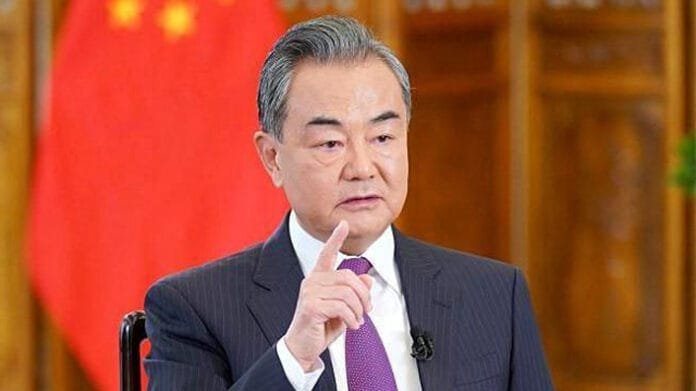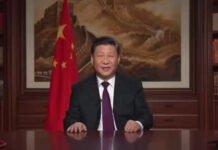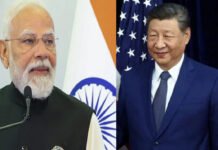The evolving diplomatic landscape between India and China marks a pivotal moment as both nations prepare to deepen dialogue on the long-standing border dispute along the Line of Actual Control (LAC). On Wednesday, in New Delhi, the 34th meeting of the Working Mechanism for Consultation and Coordination on India-China Border Affairs (WMCC) took place, setting the stage for a significant breakthrough in bilateral relations. This meeting not only reviewed the status quo along the border but also paved the way for high-level talks scheduled for later this year in India, with Chinese Foreign Minister Wang Yi expected to visit.
Comprehensive Review of the Border Situation by Both Nations
The recent WMCC meeting provided an essential platform for India and China to undertake a thorough evaluation of the prevailing situation along the LAC. Both sides expressed satisfaction regarding the current state of peace and stability in the sensitive border areas, signaling a positive shift from previous tensions. This affirmation from the Ministry of External Affairs underscores the commitment of both countries to maintain calm and prevent escalation.
The India-China border has witnessed intermittent flare-ups in the past, but the consistent diplomatic engagement through mechanisms like WMCC has facilitated dialogue and crisis management. The stability mentioned by both parties indicates that these efforts are yielding tangible results. It reflects a mutual understanding that peace along the border is paramount for fostering broader bilateral ties.
Preparations for Special Representatives’ Talks: A Major Diplomatic Step
A key outcome of the WMCC meeting was the mutual agreement to prepare for the next round of talks between the Special Representatives (SRs) on the border issue, slated to take place in India by the end of this year. These talks are highly anticipated, as they serve as the primary diplomatic channel for addressing complex and sensitive border concerns.
The Special Representatives dialogue represents the highest level of negotiation specifically focused on resolving border disputes. On the Chinese side, Foreign Minister Wang Yi serves as the SR, while India’s delegation is led by National Security Advisor (NSA) Ajit Doval. Wang Yi’s expected visit to India for this round of talks is significant, as it reflects China’s willingness to engage constructively on Indian soil, indicating a positive diplomatic tone.
The Role of Wang Yi’s Visit in Shaping Bilateral Relations
The anticipated visit of Chinese Foreign Minister Wang Yi is more than a routine diplomatic engagement; it is a clear signal of Beijing’s intent to stabilize and possibly improve ties with New Delhi. Historically, Wang Yi has been a key figure in India-China diplomacy, playing a vital role in navigating tensions and fostering communication.
His visit will likely focus on discussing the unresolved border issues, sharing perspectives on peace maintenance, and reinforcing confidence-building measures. Additionally, it will provide a platform to address broader strategic concerns and enhance cooperation beyond the border dispute, potentially touching upon trade, cultural exchanges, and regional security.
Diplomatic and Military Channels: Sustaining Regular Exchanges
The Ministry of External Affairs’ statement reaffirmed the commitment of both sides to maintain regular diplomatic and military-level contacts through established mechanisms. This approach has been central to avoiding misunderstandings and managing incidents effectively.
Regular dialogues at various levels ensure that both nations stay aligned on border developments and can promptly address any contingencies. This institutionalized communication fosters transparency and trust, which are essential for long-term peace.
Historical Context: The Evolution of India-China Border Talks
The India-China border dispute is a complex legacy issue dating back decades, with the LAC remaining undelineated and disputed in several sectors. Past confrontations, including the 1962 war and the more recent standoffs in 2020, underscore the volatility of the region.
However, the establishment of the WMCC in 2012 marked a renewed commitment to resolving border issues through dialogue and coordination. The 34 meetings held to date reflect ongoing efforts to create frameworks for peace and understanding, even if a final settlement remains elusive.
The last Special Representatives talks were held in China in December of the previous year, emphasizing the reciprocal nature of these engagements. Holding the upcoming talks in India for the first time in recent years indicates a more balanced and cooperative diplomatic phase.
Significance of Maintaining Peace and Stability Along the LAC
Peace along the India-China border is not only crucial for bilateral relations but also has wider regional and global implications. Both countries are major powers with extensive economic and strategic influence, and border stability directly impacts their domestic security and economic growth.
A peaceful LAC allows India and China to focus on enhancing trade, investment, and connectivity initiatives, such as those under the BRICS and other regional forums. Moreover, reducing military tensions lowers the risk of inadvertent conflict escalation, which could destabilize South Asia.
Outlook for India-China Relations Post Talks
The upcoming Special Representatives talks, especially with the participation of Wang Yi in India, represent an important opportunity to reset the narrative and strengthen bilateral relations. Both countries have demonstrated pragmatic diplomacy by preparing the ground for these discussions and showing mutual respect for established processes.
Success in these talks could lead to further de-escalation along the border, new confidence-building measures, and expanded cooperation in other sectors such as trade, technology, and climate change. It will also reaffirm the commitment of both nations to peaceful coexistence and regional stability.
Conclusion: A Path Forward for Diplomatic Engagement
The recent 34th WMCC meeting in New Delhi marks a significant milestone in India-China border diplomacy. By reviewing the border situation comprehensively and agreeing to convene the Special Representatives talks in India later this year, both nations have shown an encouraging willingness to move forward constructively.
The anticipated visit of Chinese Foreign Minister Wang Yi for these talks symbolizes the seriousness of China’s engagement. Coupled with the steadfast participation of NSA Ajit Doval on the Indian side, this dialogue is poised to be a crucial step in addressing one of Asia’s most challenging diplomatic puzzles.
Maintaining peace, stability, and open communication along the LAC remains paramount. As India and China prepare for this next round of negotiations, the international community watches closely, hopeful that dialogue will translate into lasting resolution and enhanced partnership.
















